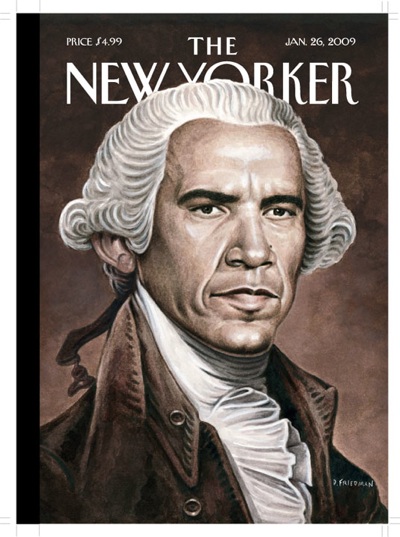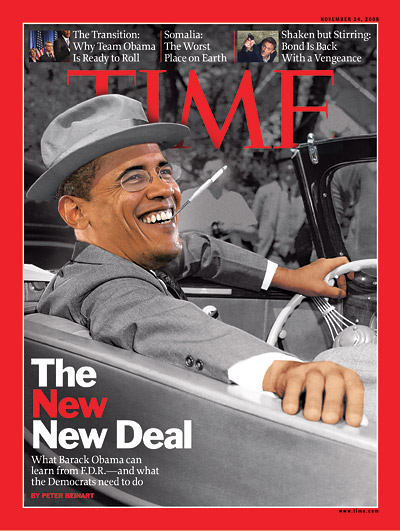I mean, it is the first day. I'm sure he'll start sending people to the camps soon. But he's very clever so far in that he appears to be a decent man who wouldn't do something like that. We'll remain vigilant certainly.

Item (takes too long for my finger pointer):
Relief
Tomorrow George W. Bush will cease to be President of the United States. It seems almost like a miracle that the worst president of my lifetime and possibly of all time will finally be gone. I cannot express what an enormous sense of relief and hope I am feeling right now, but I expect a lot of people are feeling it too, so there is less a need to express it precisely than to share it.
Tomorrow, when my wife gets home from work and before we go to one of our weekly poker games, I'll pull the cork on the '85 porto I brought back from Portugal in 2003 and we'll drink a toast to the end of the horrible nightmare of George Bush and his co-conspirators, thieves, liars, and murderers all. I look forward to an Obama administration. It can't be any worse than the hell we all just went through.
Tomorrow George W. Bush will cease to be President of the United States. Wow. I love that sentence.

Item: Krugman says the bailout should go deeper.
Rescuing The Economy
The last president to face a similar mess was Franklin Delano Roosevelt, and you can learn a lot from his example. That doesn't mean, however, that you should do everything FDR did. On the contrary, you have to take care to emulate his successes, but avoid repeating his mistakes.
About those successes: The way FDR dealt with his own era's financial mess offers a very good model. Then, as now, the government had to deploy taxpayer money in order to rescue the financial system. In particular, the Reconstruction Finance Corporation initially played a role similar to that of the Bush administration's Troubled Assets Relief Program (the $700 billion program everyone knows about). Like the TARP, the RFC bulked up the cash position of troubled banks by using public funds to buy up stock in those banks.
There was, however, a big difference between FDR's approach to taxpayer-subsidized financial rescue and that of the Bush administration: Namely, FDR wasn't shy about demanding that the public's money be used to serve the public good. By 1935 the U.S. government owned about a third of the banking system, and the Roosevelt administration used that ownership stake to insist that banks actually help the economy, pressuring them to lend out the money they were getting from Washington. Beyond that, the New Deal went out and lent a lot of money directly to businesses, to home buyers and to people who already owned homes, helping them restructure their mortgages so they could stay in their houses.
Can you do anything like that today? Yes, you can. The Bush administration may have refused to attach any strings to the aid it has provided to financial firms, but you can change all that. If banks need federal funds to survive, provide them — but demand that the banks do their part by lending those funds out to the rest of the economy. Provide more help to homeowners. Use Fannie Mae and Freddie Mac, the home-lending agencies, to pass the government's low borrowing costs on to qualified home buyers. (Fannie and Freddie were seized by federal regulators in September, but the Bush administration, bizarrely, has kept their borrowing costs high by refusing to declare that their bonds are backed by the full faith and credit of the taxpayer.)
Conservatives will accuse you of nationalizing the financial system, and some will call you a Marxist. (It happens to me all the time.) And the truth is that you will, in a way, be engaging in temporary nationalization. But that's OK: In the long run we don't want the government running financial institutions, but for now we need to do whatever it takes to get credit flowing again.
Breaking: I wrote the above yesterday. Here's a rundown of what Obama has done his first day. Again, it doesn't appear to look much like fascism--as most fascists do not extend FOIA powers-- but what do I know.
The Orders and Memoranda state that:
- ... he will freeze his White House senior staff pay at current levels to the full extent allowed by law ... The President and his staff recognize that in these austere times, everyone must do more with less, and the White House is no exception.
- In the Executive Order on Ethics Commitments by Executive Branch Personnel, the President, first, prohibits executive branch employees from accepting gifts from lobbyists. Second, he closes the revolving door that allows government officials to move to and from private sector jobs in ways that give that sector undue influence over government. Third, he requires that government hiring be based upon qualifications, competence and experience, not political connections.
- ... the President instructs all members of his administration to operate under principles of openness, transparency and of engaging citizens with their government. To implement these principles and make them concrete, the Memorandum on Transparency instructs three senior officials to produce an Open Government Directive within 120 days directing specific actions to implement the principles in the Memorandum. And the Memorandum on FOIA instructs the Attorney General to in that same time period issue new guidelines to the government implementing those same principles of openness and transparency in the FOIA context.
- ... This order ends the practice of having others besides the President assert executive privilege for records after an administration ends. Now, only the President will have that power, limiting its potential for abuse. And the order also requires the Attorney General and the White House Counsel to review claims of executive privilege about covered records to make sure those claims are fully warranted by the Constitution.
Update by SusanG: Tim Dickinson over at Rolling Stone observes:
Obama has just rescinded the rule that would have let Bush’s heirs continue to claim executive privilege over his papers.
Labels: barack obama, don't regret my vote yet, not a fascist yet












Post a Comment